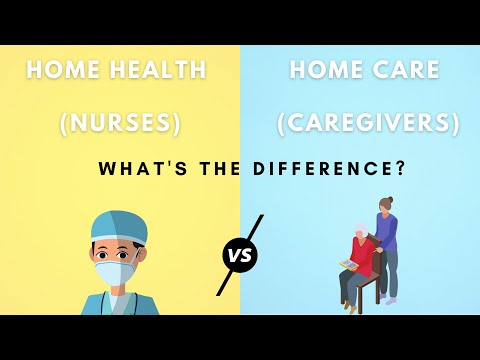The Importance of Oral Health in the Elderly
Contents [show]
The Importance of oral health in the Elderly – Many older adults don’t realize the importance of Oral Health and how it can affect their overall health. This blog will explore the importance of oral health in the elderly and some tips on how to maintain good oral health.
Checkout this video:
The Importance of Oral Health in the Elderly
As people age, their risk for developing oral health problems increases. Gum disease is the most common oral health problem in older adults, and it can lead to tooth loss and other serious problems. Good oral hygiene, regular dental check-ups, and prompt treatment of oral health problems can help older adults keep their teeth and gums healthy.
Oral health is important for overall health and well-being. Poor oral health can lead to pain, infection, tooth loss, and difficulty eating. Older adults are at especially high risk for developing oral health problems because of a number of factors, including:
– Decreased saliva production
– Dry mouth
– Dentures that don’t fit well
– Difficulty reaching all areas of the mouth when brushing or flossing
– Gum disease
– Tooth decay
Oral health problems can also make it difficult to eat a nutritious diet, which can lead to malnutrition. Malnutrition can make it harder for the body to fight infection and can make chronic diseases such as diabetes and Heart Disease worse.
Good oral hygiene, which includes brushing your teeth twice a day with fluoride toothpaste, flossing daily, and using an antimicrobial mouthwash as needed, is the best way to prevent oral health problems In addition, regular dental check-ups are important so that any problems that do develop can be detected and treated early.
The Link Between Oral Health and Overall Health
The link between oral health and overall health is evident in the elderly population. Poor oral hygiene can lead to a number of problems, including tooth decay, gingivitis, and periodontitis. These problems can in turn lead to other health problems, such as malnutrition, infections, and even cardiovascular disease.
Good oral hygiene is therefore essential for the elderly. Brushing and flossing regularly can help to remove plaque and bacteria from the teeth and gums, reducing the risk of oral health problems. It is also important to visit the dentist regularly for checkups and cleanings. By taking care of their oral health, the elderly can help to improve their overall health and wellbeing.
The Impact of Poor Oral Health in the Elderly
The impact of poor oral health in the elderly cannot be understated. Poor oral health can lead to a number of problems, including:
– Tooth loss
– Difficulty eating and digestive problems
– Pain and discomfort
– Infection
– Respiratory problems
– Social isolation and depression
Oral health is important at any age, but it is especially important for the elderly. The elderly are more susceptible to oral health problems due to a number of factors, including:
– Decreased saliva production, which can lead to dry mouth and an increased risk of cavities and gum disease.
– A decline in immune function, which makes it more difficult to fight off infection.
– Medications that can cause side effects such as dry mouth or increased risk of gum disease.
– Dentures that don’t fit properly or are not well cared for.
There are a number of things that can be done to improve oral health in the elderly, including:
– quitting smoking;
– eating a healthy diet;
– brushing and flossing regularly;
– using alcohol-free mouthwash;
See your dentist regularly for professional cleanings and checkups. If you have dentures, make sure they fit properly and clean them daily.
The Cost of Poor Oral Health in the Elderly
The cost of poor oral health in the elderly is significant. It has been estimated that the annual cost of dental care for seniors is more than $11 billion. This includes the cost of routine dental care, as well as the cost of dental procedures such as extractions, fillings, and dentures. In addition to the financial cost, poor oral health can also lead to pain and suffering, and can even be life-threatening in some cases.
There are a number of reasons why the elderly are more likely to have poor oral health. One reason is that they are more likely to have chronic medical conditions that can affect their oral health, such as diabetes or Alzheimer’s disease. In addition, many seniors take medications that can cause side effects such as dry mouth or gum problems. As people age, they are also more likely to lose their teeth, which can make it difficult to eat a nutritious diet and keep their mouths healthy.
There are a few simple steps that seniors can take to improve their oral health. First, they should visit their dentist regularly for checkups and cleanings. They should also brush their teeth twice a day with fluoride toothpaste, floss daily, and eat a healthy diet. If they are experiencing any problems with their teeth or gums, they should see their dentist right away. By taking these simple steps, seniors can help reduce the cost of poor oral health and improve their overall quality of life.
The Benefits of Good Oral Health in the Elderly
Good oral health is important at any age, but it is especially important for seniors. Unfortunately, many elderly people do not have dental insurance and cannot afford to see a dentist regularly. This can lead to a number of serious problems, including tooth decay, gum disease, and mouth infections. Poor oral health can also cause problems with digestion and make it difficult to eat properly.
There are a number of ways that seniors can improve their oral health. First, they should make sure to brush their teeth at least twice a day and floss daily. They should also see a dentist every six months for a cleaning and check-up. Additionally, seniors should eat a balanced diet and avoid sugary drinks and snacks. Finally, they should quit smoking if they are smokers.
The benefits of good oral health are numerous. Seniors who have good oral health are less likely to experience tooth decay, gum disease, and mouth infections. They are also more likely to be able to eat properly and have overall better health. Therefore, it is important for seniors to take care of their teeth and gums to enjoy the best possible quality of life.
The Risks of Poor Oral Health in the Elderly
SENiors are at an increased risk for developing a number of serious health problems, many of which can be linked to poor oral hygiene. These include heart disease, stroke, diabetes, and respiratory illnesses such as pneumonia. In fact, studies have shown that seniors with dental problems are more likely to be hospitalized for preventable illnesses than those without any dental problems.
Good oral hygiene is essential for maintaining overall health and preventing these serious health problems. Here are a few tips for seniors to keep their mouths healthy:
-Brush your teeth at least twice a day with a toothpaste that contains fluoride.
-Floss your teeth every day.
-Visit your dentist regularly for professional cleanings and checkups.
-Quit smoking. Smoking increases the risk for gum disease, tooth decay, and mouth cancer.
-Eat a balanced diet and avoid sugary snacks and drinks.
The Importance of Regular Dental Checkups
Older adults are at a greater risk for poor oral health due to a number of factors, including changes in the mouth, dry mouth, and medications that can cause tooth decay and gum disease. It is important for older adults to see their dentist regularly to maintain good oral health and prevent these problems.
The Impact of Good Oral Health on Quality of Life
It’s no secret that oral health is important for our overall health and wellbeing, but did you know that it becomes even more important as we age? Poor oral health can lead to a decrease in quality of life, and can have a significant impact on our mental and physical health.
Good oral health is essential for seniors for many reasons. For one, it helps to prevent tooth decay and gum disease, which are two of the most common problems faced by seniors. It also helps to keep our teeth and gums healthy, which in turn helps us to maintain a good level of overall health.
In addition to its physical benefits, good oral health also has a number of psychological benefits. Seniors who have good oral health are more likely to have higher self-esteem and confidence, and are less likely to suffer from depression. They are also more likely to socialize and interact with others, which can help to improve their overall sense of wellbeing.
So what can we do to maintain good oral health as we age? There are a number of simple steps that we can all take to make sure that our teeth and gums stay healthy:
-Brush your teeth at least twice a day with a fluoride toothpaste.
-Floss regularly.
-Visit your dentist or dental hygienist regularly for checkups and cleanings.
-Eat a balanced diet and limit sugary snacks and drinks.
-Quit smoking if you smoke cigarettes or use tobacco products.
The Importance of Good Oral Hygiene
Good oral hygiene is important at any age, but it’s especially important for seniors. That’s because gum disease, tooth decay, and other oral health problems are more common in older adults.
Oral health problems can cause pain, difficulty eating, and problems with speaking and smiling. They can also lead to other health problems. For example, gum disease has been linked to heart disease, stroke, and diabetes.
Fortunately, good oral hygiene is easy to practice. The following tips can help seniors keep their mouths healthy:
-Brush your teeth twice a day with a soft-bristled toothbrush.
-Replace your toothbrush every three to four months, or sooner if the bristles are frayed.
-Use toothpaste with fluoride. Fluoride helps prevent cavities.
-Floss regularly. Use an interdental brush if you have trouble using regular floss.
-Eat a healthy diet and avoid sugary snacks and drinks.
-Don’t smoke or use other tobacco products. Tobacco increases your risk for gum disease and other oral health problems.
-See your dentist regularly for professional cleanings and checkups.
Tips for Maintaining Good Oral Health in the Elderly
Good oral health is important at any age, but it’s especially important for seniors. That’s because older adults are more likely to have gum disease, tooth decay and other oral health problems.
There are several things seniors can do to maintain good oral health:
-Brush your teeth twice a day with a soft-bristled toothbrush. Be sure to use a fluoride toothpaste.
-Floss your teeth once a day.
-Visit your dentist regularly for cleanings and checkups.
-Eat a healthy diet and avoid sugary snacks and drinks.
-Don’t smoke or use tobacco products.







